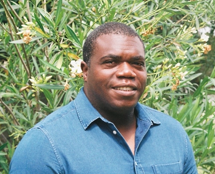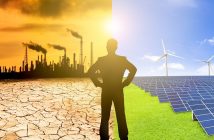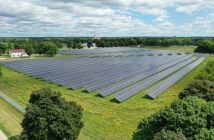The most disappointing thing about the sudden mobilisation against the Karpowership contracts is the timing and direction of the engagement. A lot of the public anger that we have seen, and which coincided with another round of load shedding, is directed at potential rigging of the process by people connected to energy Minister Gwede Mantashe and not the fact that over 20 million tonnes of methane and carbon dioxide will be dumped into the atmosphere over the next two decades, plus all the ocean heating and marine habitat destruction that will come with eight ships being stationed off the country’s coast.
The anger is also reactive, rather than proactive. We cannot say that we did not see this coming. The Department of Mineral Resources and Energy informed us well in advance of its plans to award independent power producer (IPP) contracts to fossil companies. It prepared a shortlist and still there was no reaction from the public or from the unions that have a vested interest in protecting their members.
We the people effectively outsourced this momentous decision, one that is going to commit South Africa to a twenty year, R218 billion contract, to a small group of individuals. Now, we have to deal with the consequences.
The point I want to make in this piece is the following: South Africa is currently trapped in a dual energy-ecological crisis and it will take the collective effort of the all of the body politic’s parts to emerge at the other end of the tunnel. Simply outsourcing decision making to the top is an abdication of responsibility. If we look to the north, we will see that people’s power is already shaping the energy and infrastructure deals of most major economies.
We have watched for example as Fridays for Future, Extinction Rebellion, Ende Gelände, green parties and other sustainability movements have pushed the governments of the G20 economies into accelerating the transition from fossils to renewables. In these economies, you can no longer get elected into high office if you do not have an ambitious environmental programme.
Related news: Karpowership: government officials admit to meeting bidder posh Tswane restaurant
In the United States, the Democratic base has pushed President Biden to re-enter the Paris Climate Agreement and reintroduce environmental protections and efficiency measures for the auto industry. Although the Republican party is firmly behind fossils, polling shows that over 65% of Americans believe that the federal government should do more to reduce the impacts of climate change.
In France, the Convention Citoyenne pour le Climat (citizens’ compact for climate) forced President Macron to act more swiftly on climate change. Persistent calls for tougher environmental protections grew so loud during Macron’s second year in office that his government invited activists to the French parliament and gave them a platform to come up with a list of priorities. The citizen’s assembly debated in the hemicycle of the French parliament, where parliamentarians usually sea, and adopted ambitious policies including the reduction of the work week, shortening of food supply chains, making the transport system more efficient, rolling back consumption and reviewing how France builds. Although only a watered-down version of their proposals was voted into law, the majority of French voters across the political spectrum now view environmental protections as a key deciding factor ahead of next year’s elections.
In Germany where a majority of the population is now anti-coal, Armin Laschet, i.e. Chancellor Merkel’s putative successor and Minister President (Premier) of Germany’s number one coal-producing region of North Rhine-Westphalia is struggling to shake off his reputation of fossil industry hawk after seeing off rival Markus Söder of Bavaria. Laschet’s CDU/CSU coalition currently trails the Green party’s Annalena Baerbock in the latest polls, a clear sign of how important Germans view urgent and bold mitigation and adaptation measures.
There are many more examples of course. The common theme here, and what I want you to see, is the role of we the people in these countries. It is we the people who are demanding action now and forcing their governments to adopt ambitious climate programmes. We the people are saying Ende Gelände – it ends now!
Even the International Energy Agency (IEA), which once dismissed solar as a serious source of energy for major economies now admits in its Net Zero by 2050: A Roadmap for the Global Energy Sector that solar is now cheaper than coal and gas. Renewable electricity already represents 28% of global electricityproduction, with 9% of that coming from solar and wind. In terms of growth, solar PVs has been the fastest growing source of energy over the past half-decade. The IEA report recommends that we need to stop new coal, oil and gas projects now in 2021 in order to limit the rise in global temperatures to 1.5 °C and achieve net-zero emissions by 2050. Page 152 of the report gives us a clear pathway to net-zero emissions.
Which brings us back to South Africa. Investing in renewables is not as far-fetched as we think. In fact, it is in our best interest to act now as renewables will help reduce stress on water sources, lower temperatures, improve air quality and put more money in your pockets. That’s right – more money in your pockets, way more than what you will ever get from coal and gas. Now that is a message that even the climate sceptics can get behind!
Let’s do some quick calculations, shall we? We know that ESKOM’s financial difficulties are incredibly difficult to overcome, as Stephe Grootes and others have shown, and so they are going to lean more and more on IPPs. For this reason, we the people should demand to play an active role in the country’s energy transformation. How? Let’s start with the R218 billion which the Karpowerships deal is expected to cost over 20 years. This may be flawed in some regards, but bear with me for the purposes of this example.
The Risk Mitigation Independent Power Procurement Programme contracted a total of 1845 MW of electricity. That is enough to power the entire city of Cape Town, according to ESKOM. How many solar PV installations do you think we can make with R218 billion?
A calculation by James de Villiers shows that a 4-7kWp PV installation for a small home “can cost anything between R60,000 and R105,000, excluding battery costs”. if we suppose that each unit will initially cost R100,000, then R218 billion can buy 2,180,000 PV setups. The 100K figure can be driven down by a government subsidies programme. A thriving market with more PV businesses, trades and so on will also drive down set-up costs. Prosumer (producer-consumer) households in Australia are already paying as little as R36,000 for 3kW grid-connected systems.
On to wind. There are many household kits available for under R11,000 that can light up a few bulbs and power one or two appliances, but let’s go big, shall we? A 1MW wind turbine costs about $1.3 million per megawatt of electricity-producing capacity. Let’s suppose that 1200 households decide to invest in a 2MW wind turbine at a cost of about $2.5 million. That is R33,706,850 in today’s Rand or about R28,089.04 per household. How many 2MW wind turbines can R218 billion buy us? About 6467. Enough to power 7.7 million homes. Now, the average lifespan of a wind turbine is 20 years, which works out to R1404 per annum for initial costs per household. The report of the Wind Atlas for South Africa shows that the country is blessed with wind. You just cannot beat those numbers. Plus they will come with thousands of new jobs.
Obviously, I am the first to admit that these calculations are very quick, somewhat simplistic and must come with caveats. They do not factor the workforce, replacement parts, wind speeds, environmental costs of PVs, environmental impact assessment studies and so on. However, it gives us a clear idea of what is possible and it tells us why the IEA is so bullish on renewables. More importantly, it tells us that we the people can make load shedding history if we want to. The best way to approach such projects is in groups, rather than as individuals. Jurisdictions like Ekurhuleni and Stellenbosch are already planning to do just that.
Remember that Energy Minister has spoken about transforming ESKOM into a Netherlands-type utility company (is that where the unbundling process is going?). Also remember that there is another round of IPP awards happening later this year. If South Africans are really interested in dictating the type of energy mix that this country should have, now is a good time to start investigating those outcomes. Ending load shedding within the next few years is within our power if we the people choose renewables today.
Author: Dr Roland Ngam

Dr Roland Ngam is programme manager for climate justice and socioecological transformation at the Rosa Luxemburg Foundation, Southern Africa. The views expressed are not necessarily those of the Rosa Luxemburg Foundation.
Disclaimer: The articles expressed in this publication are those of the authors. They do not purport to reflect the opinions or views of Green Building Africa, our staff or our advertisers. The designations employed in this publication and the presentation of material therein do not imply the expression of any opinion whatsoever on the part Green Building Africa concerning the legal status of any country, area or territory or of its authorities.











